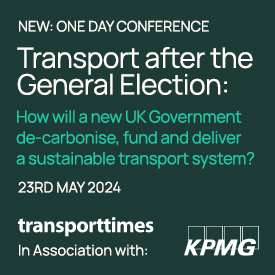The government’s spending review offered £2.1bn to improve bus services in England but Bus Service Improvement Plans have requested £7.2bn

The funds made available by the government to transform bus services fall drastically short of what is required to deliver the aspirations of the National Bus Strategy for England, the Confederation of Passenger Transport has warned.
The spending review announced by the government last month contained funding commitments of around £2.1bn for buses. This included £1.2bn for Bus Service Improvement Plans (BSIPs), £355m for zero emission buses and potentially around £500-600m for improved bus services as part of city region sustainable transport settlements.
However, CPT’s analysis of all BSIPs which had funding totals included (40 out of 79) in publicly available documents found that this funding was less than a third of what will be required to fulfil these plans. The 40 Bus Service Improvement Plans, which cover 71% of passenger journeys by bus outside of London, require total funding of £7.2bn – leaving a funding gap of more than £5bn.
The scale of this ambition will not be met though with the funds that were announced at the Spending Review
“The National Bus Strategy challenged local authorities and bus operators to set out jointly how they would transform bus services. They have risen to this challenge and produced ambitious plans right across the country,” commented CPT chief executive Graham Vidler.
“The scale of this ambition will not be met though with the funds that were announced at the Spending Review. Current funding is likely to be able to transform bus services in only a small number of places, including our major cities, but the vision of the National Bus Strategy was rightly much greater.”
CPT is calling on the government to ensure that it uses some of the available funding to deliver nationwide price capped multi-operator ticketing, which will make it easier for passengers to ensure they are getting the best value fares, and to ensure funding is made available to maintain services as passenger numbers continue to recover.
There are tough choices ahead, but we believe that, wherever they live, all passengers should benefit from at least some improvements next year
Vidler continued: “There are tough choices ahead, but we believe that, wherever they live, all passengers should benefit from at least some improvements next year. This means ensuring that all areas have funding from April 2022 to maintain services so that nowhere goes backwards in its bus provision.
“It should also mean a national approach to delivering multi-operator price capped ticketing, a feature in almost every BSIP and one which can be delivered more cost-effectively if delivered centrally.”
Funding required by 40 Bus Service Improvement Plans (Source: CPT analysis)
- Bus Priority = £2,110m
- Other infrastructure = £430m
- Zero emission buses = £1,220m
- Bus service support = £1,100m
- Fares = £660m
- Marketing = £90m
- Ticket reform = £40m
- Administrative funds to deliver plans = £130m
- Other = £270m
- Local authorities with total funding bids not broken down by funding areas = £1,100m
- Total = £7,200m
This article appears in the latest issue of Passenger Transport.
DON’T MISS OUT – GET YOUR COPY! – click here to subscribe!







